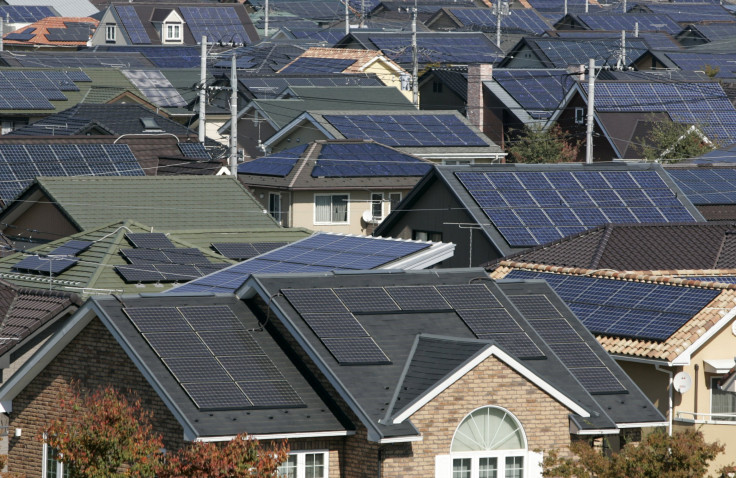Sharp's Possible Sale Of US-Based Solar Energy Subsidiary Reflects Company's Financial Troubles, Not A Struggling US Industry

Sharp Corp. of Japan is considering selling its U.S. solar energy development arm even as America’s solar market is experiencing record-breaking growth. The possible sale reflects the electronics giant’s struggling business strategy and challenging relationship with its subsidiary, not a downturn in the U.S. solar sector, analysts say.
Sharp said Monday it is “considering various options” for Recurrent Energy, its San Francisco unit. That could include the sale of the company, “but nothing has been decided at this point,” spokeswoman Miyuki Nakayama told Bloomberg News.
Rumors of a sell-off have circulated since 2012 when Kyodo News agency of Japan reported Sharp was looking for a buyer. In June 2013, Sharp told Recharge, a clean energy news site, it did not plan to sell Recurrent, saying it was “doing quite well.” In December, Sharp denied claims it was open to negotiating the sale of Recurrent.
A spokeswoman for Recurrent declined to comment, saying by email the subsidiary is not in a position to discuss Sharp’s strategy. Recurrent is one of the largest solar project developers in North America.
Solar analysts assured the Recurrent sale doesn’t signal trouble for U.S. developers. While many domestic solar panel manufacturers have struggled to stay afloat in recent years, the installers and operators of solar systems have fared much better, thanks largely to rapidly falling panel costs, technology improvements and federal and state subsidies. And in the next few years, U.S. solar installations are expected to grow dramatically.
“This is really very specific for Sharp,” Stefan de Haan, a principal solar analyst at IHS Technology in Munich, Germany, told International Business Times. “The profitability of solar development is in really good shape in the U.S., so … the underlying reason is really the company itself.”
He said the U.S. is on track to add 26,200 megawatts in cumulative solar installations from 2014 to 2016. That would bring the total solar capacity to 39,200 megawatts -- or roughly 13 times the installed amount in 2010, and enough to power roughly 6.6 million average American homes.
Sharp has been in the solar business for nearly five decades, primarily as a producer of solar cells, the electricity-generating devices in panels, though they're also into satellites and lighthouses. In the last decade, the Osaka firm began ramping up production to compete for a slice of the burgeoning solar energy market. In 2010, Sharp bought utility-scale developer Recurrent Energy for $305 million cash to vertically integrate its operations.
“Sharp aims to become a total solutions company in the [solar] field, extending from developing and producing solar cells to developing and marketing power generation plants,” a former Sharp executive said at the time.
But as cheap “polysilicon” solar panels from China began flooding the world’s markets, Sharp’s more expensive “thin film” technology struggled to compete. Around the same time, Sharp began incurring heavy losses in its broader electronics segment, forcing the company to re-evaluate its unprofitable businesses. Earlier this year, the company stopped production at its factories in Wales and Memphis, Tennessee, and in July it pulled out of a joint manufacturing venture in Europe. That leaves Sharp with just one cell production facility in western Japan.
Selling Recurrent Energy would allow Sharp to raise even more capital to put toward balancing its debt-to-equity ratio, Reuters noted.
Cory Honeyman, a solar analyst at GTM Research in Boston, said Recurrent Energy could be “an attractive buy,” given the company’s leading position in the U.S. solar market and its pipeline of projects.
The company has developed and sold more than 680 megawatts of projects in the United States and Canada and has more than 4,300 megawatts under development, the company said. Recurrent Energy teamed up with Google Inc. (NASDAQ:GOOGL) and the private equity group KKR & Co. in November to build six utility-scale solar projects in California and Arizona in a deal valued at $400 million.
“I think Recurrent represents a really attractive opportunity for acquisition, or as a stand-alone company, given that they’ve been an aggressive developer as of late,” Honeyman said.
© Copyright IBTimes 2024. All rights reserved.




















